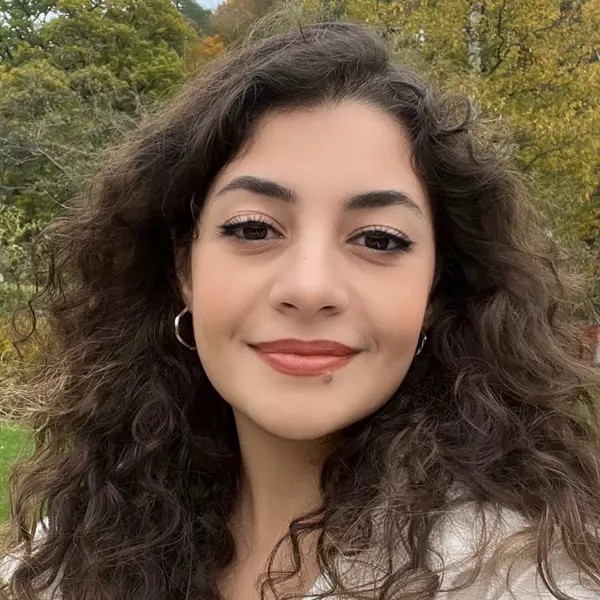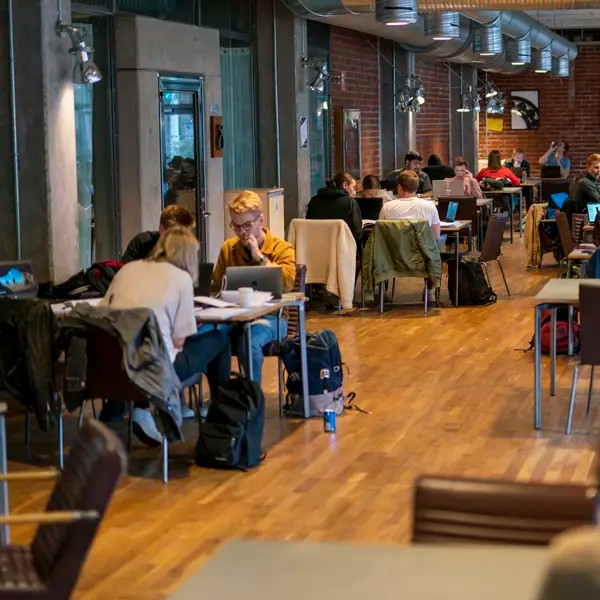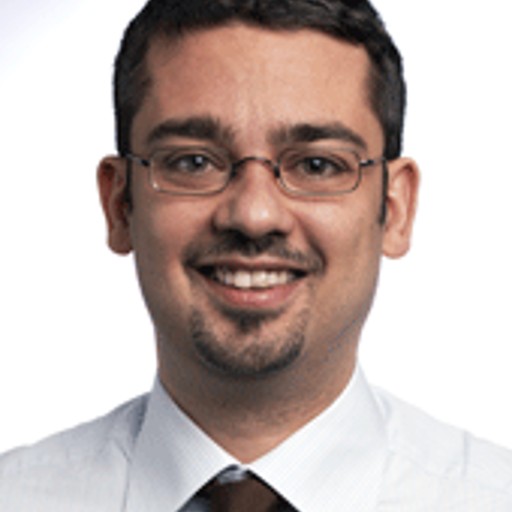
We live in the information age, where communications and information processing are at the very heart of society. Intelligent transportation systems, smart cities, remote healthcare, and cloud services: all of these technologies rely on our ability to accurately and reliably share, store, and process massive amounts of data. This master’s programme will train you to imagine, design, and build the digital systems of an interconnected future, preparing for a career in a rapidly growing and constantly evolving field.
Information and communication technology master's programme at Chalmers
Emerging technologies such as intelligent transportation systems, smart cities, traffic safety, positioning, sensing and navigation, eHealth, Industry 4.0, and cloud services all rely on our ability to store, share and process massive amounts of data. In a fast growing and rapidly evolving field, you will gain the skills to imagine, design, and build the systems of the future to enable the interconnected world.
We are also witnessing an explosion of information services and applications, in both volume and variety. These services include augmented reality, next-generation wireless systems, internet of things, cyber-security, and artificial intelligence. Providing these services on a wide scale requires the ability to handle these massive amounts of data. Therefore, there is a tremendous need for know-how to tackle this data flooding and the accompanying challenges.
In Information and communication technology, you will get ready for an advanced engineering career in the fields of communication and information science. You will acquire deep theoretical and applied knowledge, the competence to conduct complex multidisciplinary projects, and a passion for discovery.
The core courses of the programme will give you solid analytical skills and an understanding of the fundamental principles of communication and information processing: probability theory and statistical learning, digital signal processing, information and communication theory, communication networking, and security. The master’s programme offers three main tracks for specialisation with a generous number of elective courses to choose from.
The educational methods in this programme have a specific emphasis on building and refining problem-solving skills, teamwork, and presentation skills. You will also get the opportunity to interact with leading industries in the information and communication technology field via guest lectures, study visits, and exciting master thesis opportunities. As a graduate student of this programme, you will contribute to the development of the transformative and disruptive digital technologies that are needed to enable an increasingly more interconnected world.
We learn and gain an unique understanding of applications in areas from communication systems, acoustic systems to medical applications or vehicles

Topics covered
The subjects of communications systems, machine learning, IT, electronics, electrotechnics, and telecommunications are fundamental areas in the master’s programme in Information and communication technology. The courses included in the programme handle topics such as mobile communication, Internet-of-Things, Industry 4.0, Deep Learning, eHealth, Smart Society, Intelligent Transportation Systems, RF Hardware Design, Optical Communication, Satellite and Sensing Systems, and Information Processing.
Career
There is currently a fierce competition for engineers within this field who are ready to tackle the challenges and benefit from the opportunities brought on by digitalization.
You will work at the cutting edge of technology in areas such as distributed data processing, machine intelligence, sensor fusion, intelligent transportation, positioning, sensing and navigation, wireless and optical networks, and the internet of things.
With the skills and methods gained in the programme, you will be able to compete for leading positions in globally operating companies worldwide, or explore disruptive ideas in start-ups. In the Gothenburg area, international players, such as Ericsson, Huawei, Volvo Cars and Volvo Trucks, Zenseact, Saab group, Beyond Gravity, and Magna, actively recruit our graduate students. There is also a rapidly growing number of smaller companies, start-ups and consultancy companies specializing in communication and information technology. The prospective jobs range from research and development, to project management and consultancy. Some of our students also choose to continue their studies by joining doctoral programmes.
Research
Your teachers in the programme are internationally recognized researchers who are actively engaged in research and development projects in the areas of information and communication technology. They are particularly active in the Communications Systems group, one of the leading research groups worldwide in information and communication theory. The research activities in the group include information theory, machine learning, distributed inference, intelligent transportation, positioning, sensing, and navigation, cyber-physical systems, wireless and optical communication networks, security and privacy.
The researchers at the department are internationally recognized in their respective fields and are engaged in collaborative research with researchers from top universities around the world. They also collaborate with word-leading industries in a variety of competence centers and research projects with partners such as the German Aerospace Center, Ericsson, Volvo, Nokia-Bell Labs, and Orange Labs, to only name a few.
Requirements

How to apply - From application to admission
This is a step-by-step guide on how to apply for a Master's programme at Chalmers University of Technology.

